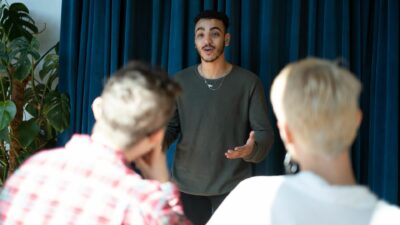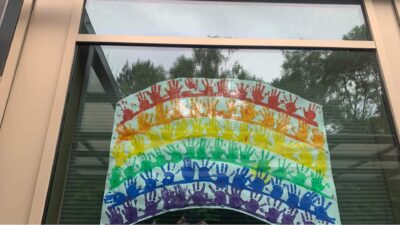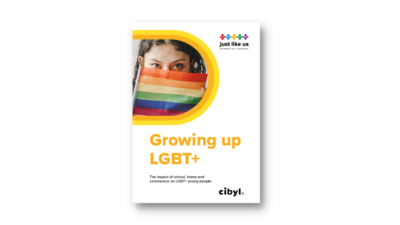
Trans History Week: Older and younger trans people in conversation
Blog
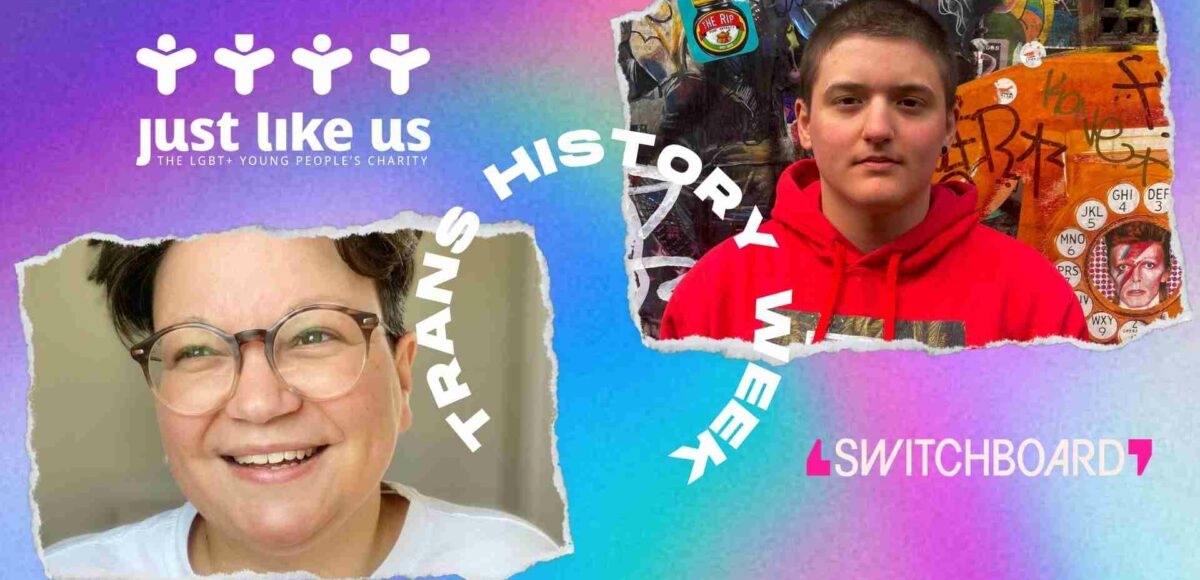
Trans History Week runs from 6 to 12 May, 2024. It’s the first-ever Trans History Week and one of the ways we’re celebrating at Just Like Us is looking at intergenerational experiences of trans life – both surviving and thriving.
We spoke to older Switchboard volunteer August (they/he) and one of our young trans ambassadors, Levi (he/him). We asked them both the same questions, plus they each had a unique question for each other.
Here they are in conversation for Trans History Week.
Meet August
First up, we have August (they/he), who is trans and a Switchboard volunteer.
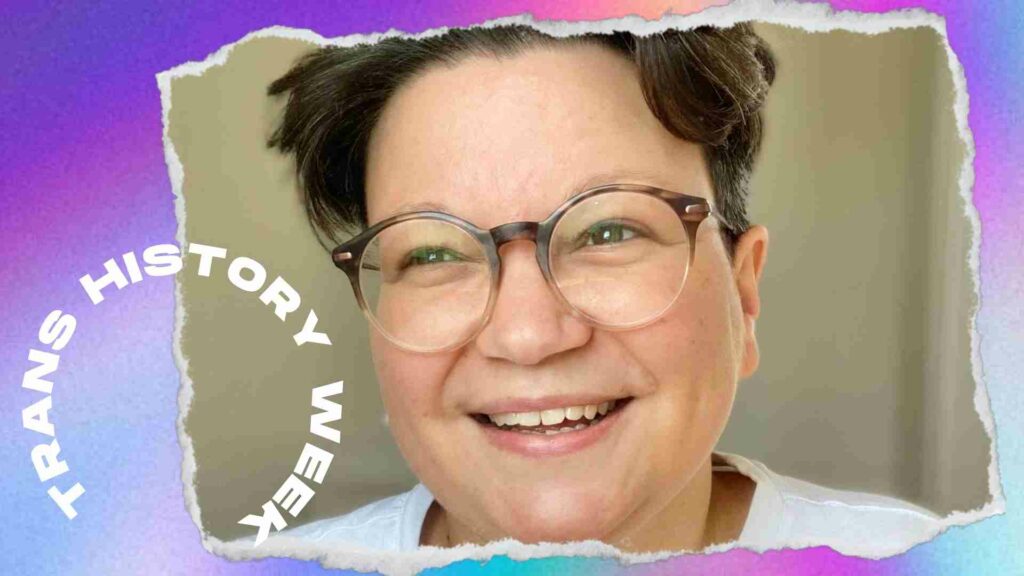
Meet Levi
Next up, we have Levi (he/him) who is also trans and volunteers as a Just Like Us ambassador.

What was it like for you growing up trans?
August (they/he): “I came out as trans in my thirties. When I was at school, Section 28 was in place, and queer role models were not as visible as they are today. I didn’t realise being trans was possible for me. However, looking back I did feel ‘different’ to my female peers, and took Pride in breaking gender conventions. I loved wearing culottes instead of a skirt and being the only ‘girl’ on the cricket team. There were signs…”
Levi (he/him): “Growing up in Brazil, which is the country where the most trans people are killed for the 14th consecutive year, I didn’t know that trans people existed until I was in my 20s. I did live with authenticity when I was a kid because some of my family members protected me to make sure that I wasn’t restricted in what I could or could not do – how to dress, doing “boy” sports, etc.
“This was really freeing for me looking back, and I did also have a good group of friends who I am still close with to this day, but there were some people in my school who would make fun of me because I ‘looked like a boy’.
“Then, when I started going through puberty, my family got more restrictive and decided that it was time for me to change and start living and presenting as a girl. I hated it, but I didn’t think there was an alternative, so I embraced it and started acting and presenting extremely feminine. People in my school seemed to like me better and they would invite me more to social events, which seemed to be relieving, but I didn’t feel present with myself, and most of all, I didn’t feel myself.”
It’s now Trans History Week 2024. What is life like for you now as a trans person?
August (they/he): “Better than I ever imagined was possible! I have a career I love, working in a charity supporting trans, non-binary and intersex people. I have a wonderful partner who is non-binary. I love living in Brighton, where I have amazing friends.”
Levi (he/him): “It’s a hard question to answer because I can’t say that it is all positive and easy still, but the freedom of living authentically doesn’t have a price tag on it. It is very hard to face the struggles and prejudices from society because you’re out there trying to live your life normally, and there are always people who seem to like to make it harder by making uncomfortable comments without thinking first that you are a person, and being trans doesn’t make you out of this world.
“I struggle especially with some family members because they purposely misgender me and make comments about how I should live my life. Also, living in the UK, as we’re facing a huge wave of transphobia. On the other hand, I have a very supportive partner and a community of queer people who have give me the freedom to just be myself, to the point that I forget the struggles of living in a transphobic society.
“Being an ambassador at Just Like Us has given me the opportunity to use my voice to empower the LGBTQ+ community, and to help especially young people see that there’s hope and joy in our community.
“I do school talks, which involve teaching young people LGBT+ terms, sharing my personal story, and educating them to respect one another regardless of gender identity or sexual orientation. It’s good to see that despite them still not always using the right terms and some still not fully understanding everything about the community, they’re genuinely interested and like to ask us questions to learn more.
“I volunteer because I wish that I could’ve been one of these kids and learned that there’s no one way of being from the LGBT+ community. Most of all, that it’s OK to be yourself, and you aren’t always going to fit in the boxes you’re expected to fit in pre-set gender roles.”
What do you wish you could ask an older trans person this Trans History Week?
Levi (he/him) asks: What made you keep positive to face so many struggles, especially when there wasn’t any prospect of the world becoming more aware and educated about trans people?
August (they/he) replies: “I found people I identified with through arts and literature. We have always been here, even if the word ‘trans’ wasn’t always used. Characters in books, films, plays and so on reminded me that I wasn’t alone in my feelings, and that one day I’d find my people and my place in the world. And I have!”
What do you wish you could ask an younger trans person this Trans History Week?
August (they/he) asks: How can older trans adults better support trans young people today?
Levi (he/him) replies: “With everything happening right now related to trans people, our generation is especially being targeted. We need more representation and visibility in the media from older trans people who are still alive, because I think it would help us to show the world that we’ve always been here and we still are, just living our daily lives like everyone else.
“I also think that we need to create safe spaces and events to bring closer all generations of trans people, where we can share our experiences, hear stories from older trans people first-hand, and for younger trans people to feel more hopeful for the future.”
